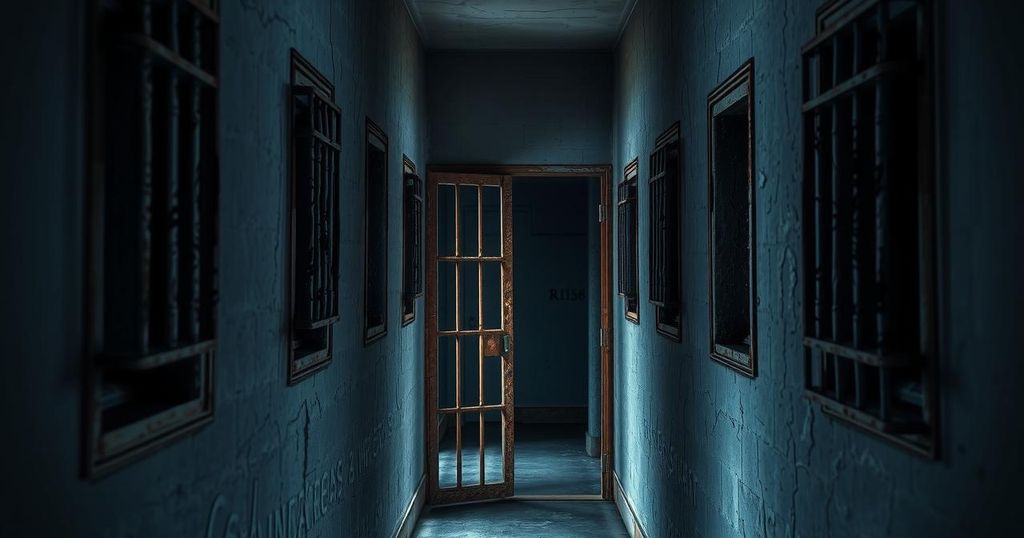Human Rights Watch Addresses Inhumane Prison Conditions in El Salvador

Juanita Goebertus, Director of the Americas Division of Human Rights Watch, recommends urgent attention to the severe prison conditions in El Salvador in light of ongoing human rights abuses. Reports detail the overcrowding and mistreatment of detainees, particularly under the state of emergency, which has led to thousands of detentions and widespread violations of rights. The situation requires immediate scrutiny both domestically and internationally.
Juanita Goebertus, the Director of the Americas Division of Human Rights Watch, has provided a declaration regarding prison conditions in El Salvador under the J.G.G. v. Trump case. Her professional background includes dual Bachelor’s degrees in Law and Political Science from Universidad de los Andes, Colombia, and a Master’s degree from Harvard Law School. Since joining Human Rights Watch in 2022, Goebertus has oversaw their work within El Salvador, having visited the country multiple times, most recently in 2024.
Individuals deported under the 1789 Alien Enemies Act have been sent to the Centro de Confinamiento del Terrorismo (CECOT) in Tecoluca, El Salvador. Initially built for 20,000 detainees, its capacity was increased to 40,000. In a communication with the UN Human Rights Committee in July 2024, Human Rights Watch emphasized concerns that such a large population would hinder individualized treatment for detainees, thereby violating UN standards for prisoner treatment.
Detainees at CECOT and other prisons in El Salvador are restricted from communicating with family and lawyers, with court appearances held digitally in large groups. The government has labeled these detainees as “terrorists” and announced that they “will never leave.” The organization has noted a lack of awareness of any detainees’ release and highlighted government restrictions preventing human rights organizations from accessing prisons.
Goebertus asserts that while CECOT may feature modern technology, mistreatment there mirrors findings documented in other Salvadoran facilities, such as Izalco and Santa Ana prisons. Reports include torture, poor health care, and inadequate food access, with numerous cases of severe violations of due process. A three-year state of emergency, established in March 2022, has suspended constitutional rights and led to a dramatic increase in detainees.
Since the inception of the state of emergency, the government states that approximately 85,000 individuals have been detained, constituting 1.4% of El Salvador’s population. Estimates from Human Rights Watch reveal that around 109,000 people are currently incarcerated in facilities designed for only 70,000, leading to overcrowded and deadly conditions; over 350 individuals are reported to have died in prisons since then.
A July 2024 report by Human Rights Watch examined abuses against children during this period, noting over 3,300 children incarcerated, many without any ties to gang activities. The report documented allegations of torture and ill-treatment of children while in detention, contradicting international juvenile justice standards due to new legislation transferring young offenders to adult prison systems, increasing their vulnerability to abuse.
Interviews conducted for the reports revealed visceral accounts of abuse, including beatings during arrest and imprisonment. One interviewee recounted extreme overcrowding and conditions that forced detainees to sleep on the floor in unsanitary settings. A separate case illustrated the distressing conditions in which a detainee was subjected to intense psychological and physical abuse by guards, resulting in injuries requiring medical interventions.
Evidence collected also highlighted deaths occurring in custody, with some instances leading to burials without the families’ knowledge, potentially classifying them as enforced disappearances. In several cases, officials failed to ensure the provision of necessary medication for chronic health conditions, contributing to preventable deaths among detainees.
Additional documentation from Human Rights Watch’s previous reports emphasized severe cases of maltreatment toward Salvadoran deportees by U.S. authorities, detailing incidents of brutal treatment experienced during detainment. Goebertus solemnly concluded the declaration in Villa de Leyva, Colombia, on March 19, 2025.
In summary, the declaration and the accompanying reports from Human Rights Watch shine a critical light on the dire prison conditions in El Salvador under the current government. The allegations of systemic abuse, overcrowding, and violations of basic human rights paint a troubling picture of the treatment of detainees and the government’s approach to justice during the ongoing state of emergency. Immediate international attention and intervention may be necessary to address these extensive human rights violations.
Original Source: www.hrw.org








